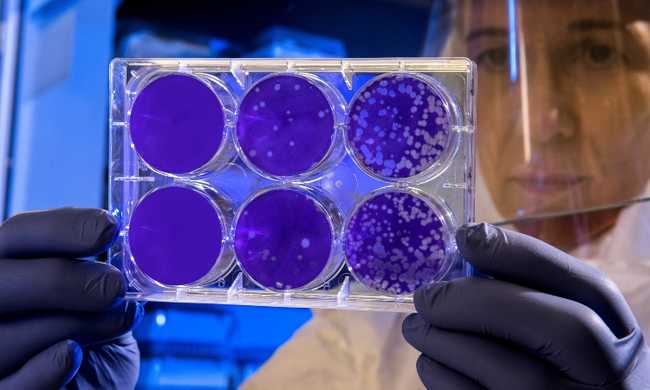Alkaline Diet: what it is and benefits
Alkaline diet foods provide real benefits, but it has not been proven to have to do with pH

Nadine Primeau image on Unsplash
The alkaline diet is based on the idea that replacing foods that form acids with alkaline foods can improve health. It has been claimed that maintaining an alkaline diet makes it possible to cure many ailments, including bone diseases such as osteoporosis, and even cancer. There is no scientific consensus on the benefits of an alkaline diet. On the other hand, some studies suggest that an alkaline diet has real benefits.
A study published by the journal PubMed states that the alkaline diet can have a number of health benefits, including:
- Increasing the consumption of fruits and vegetables included in an alkaline diet would improve the potassium/sodium ratio, which could benefit bone health and reduce muscle loss, as well as mitigate other chronic diseases such as hypertension and stroke;
- An alkaline diet would result in an increase in growth hormone, which can improve many aspects of cardiovascular health, memory and cognition;
- An increase in consumption of foods rich in magnesium (an alkalizing nutrient), which is necessary for the function of many enzyme systems, is another benefit of the alkaline diet. Magnesium is needed to activate vitamin D and increasing its concentration therefore improves vitamin D concentration;
- Alkalinity may result in additional benefit for some chemotherapeutic agents that require a higher, ie more alkaline, pH.
According to the study itself, based on the above statements, it would be necessary to consider an alkaline diet to reduce morbidity and mortality from chronic diseases.
According to the study, one of the first considerations in an alkaline diet, which includes more fruits and vegetables, is knowing the type of soil in which the food was grown, as this can significantly influence the mineral content.
How it works
Metabolism can basically be defined as the conversion of food into energy, being compared to fire, as both involve a chemical reaction that breaks down a solid mass. However, the body's chemical reactions happen in a slow and controlled manner.
When things burn, a residue of ash is left behind. Likewise, the foods you eat leave a “gray” residue known as metabolic waste. These metabolic residues can be alkaline, neutral or acidic. Proponents of the alkaline diet claim that metabolic waste can directly affect the body's acidity. In other words, if you eat foods that leave acidic ash, it makes your blood more acidic. If you eat foods that leave alkaline ash, it makes your blood more alkaline.
According to the acid ash hypothesis, acid ash is believed to increase vulnerability to disease and illness, while alkaline ash is considered protective. By choosing more alkaline foods, you can "alkaline" your body and improve your health.
Food components that leave an acid ash include protein, phosphate and sulfur, while alkaline ones include calcium, magnesium and potassium (1, 2). Certain food groups are considered acidic, alkaline or neutral:
- Acids: meat, poultry, fish, dairy, eggs, grains, alcohol
- Neutral: natural fats, starches and sugars
- Alkaline: fruits, nuts, vegetables and vegetables
Regular body pH levels
To understand the alkaline diet, it is important to understand pH. Simply put, pH is a measure of how acidic or alkaline something is.
The pH value ranges from 0 to 14, where:
- Acid: 0.0-6.9
- Neutral: 7.0
- Alkaline (or basic): 7.1-14.0
Alkaline diet advocates suggest that people monitor the pH of their urine to ensure that it is alkaline (above 7) and not acidic (below 7). However, it is important to note that pH varies widely within the body. While some parts are acidic, others are alkaline - there is no set level.
The stomach, for example, is loaded with hydrochloric acid, which gives it a pH of 2 to 3.5, which is highly acidic. This acidity is needed to break down food. On the other hand, human blood is always slightly alkaline, with a pH of 7.36-7.44 (3). When blood pH falls outside the normal range, it can be fatal if left untreated (4). But this only happens during certain disease states, such as ketoacidosis caused by diabetes, hunger or alcohol intake (5, 6, 7).
Food affects urine pH but not blood
It is critical for health that the pH of the blood remains constant. If it leaves the normal range, the cells stop working and the condition leads to death if not treated. For this reason, the body has many effective ways to regulate pH balance. This is known as acid-base homeostasis. It is almost impossible for foods to change the pH value of blood in healthy people, although small fluctuations can occur within the normal range.
However, food can change the pH value of urine - although the effect is somewhat variable (1, 8). Excretion of acids in the urine is one of the main ways the body regulates the pH of the blood.
When you eat a large piece of steak, for example, the urine becomes more acidic hours later as the body removes metabolic waste from the system. Therefore, urine pH is a poor indicator of the body's overall pH and overall health.
Acid-forming foods and osteoporosis
Osteoporosis is a progressive bone disease characterized by a decrease in bone mineral content. It is particularly common among postmenopausal women and can dramatically increase the risk of fractures. Proponents of the alkaline diet believe that to maintain a constant blood pH, the body draws alkaline minerals, such as calcium from bones, to buffer acids in acid-forming foods.
According to this theory, acid-forming diets, like the standard Western diet, cause a loss in bone mineral density. But this theory ignores the function of the kidneys, which are critical to removing acids and regulating the body's pH. The kidneys produce bicarbonate ions that neutralize acids in the blood, allowing the body to closely control the pH of the blood (9).
The respiratory system is also involved in controlling the pH of the blood. When bicarbonate ions from the kidneys bind to acids in the blood, they form carbon dioxide, which is expelled in the urine.
The acid-ash hypothesis also ignores one of the main drivers of osteoporosis - a loss of collagen protein from bone (10, 11). Ironically, this collagen loss is strongly linked to low levels of two acids - orthosilicic acid and ascorbic acid, or vitamin C - in the diet (12).
Keep in mind that the scientific evidence linking dietary acid with bone density or fracture risk is controversial. Although many observational studies have found no association, others have found a significant link (13, 14, 15, 16, 17). Clinical trials, which tend to be more accurate, have concluded that acid-forming diets have no impact on body calcium levels (9, 18, 19).
At the very least, these diets improve bone health by increasing calcium retention and activating the hormone IGF-1, which stimulates muscle and bone repair (20, 21). As such, a high-protein, acid-forming diet is likely to be associated with better bone health - not worse.
acidity and cancer
Many people argue that cancer only grows in an acidic environment and can be treated or even cured with an alkaline diet. However, comprehensive analyzes of the relationship between diet-induced acidosis – or increased blood acidity caused by the diet – and cancer have concluded that there is no direct link (22, 23). First, food does not significantly influence blood pH (8, 24).
Second, even if you assume that foods can dramatically change the pH value of blood or other tissues, cancer cells are not restricted to acidic environments. In fact, cancer grows in normal body tissue, which has a slightly alkaline pH of 7.4. Many experiments have successfully developed cancer cells in an alkaline environment (25).
And while tumors grow faster in acidic environments, tumors themselves create that acidity. It is not the acidic environment that creates the cancer cells, but the cancer cells that create the acidic environment (26).
Ancestral diets and acidity
Examining the alkaline diet theory from an evolutionary and scientific perspective reveals discrepancies. One study estimated that 87% of pre-agricultural humans maintained alkaline diets and formed the central argument behind the modern alkaline diet (27). More recent research estimates that half of pre-agricultural humans ate alkali-forming diets, while the other half ate acid-forming diets (28).
Remember that our remote ancestors lived in very different climates, with access to different foods. In fact, acid-forming diets were more common as people moved north of the equator, away from the tropics (29). Although about half of hunter-gatherers were maintaining an acid-forming diet, modern diseases are believed to have been much less common (30).
the verdict
The alkaline diet is very healthy, as it encourages a high intake of fruits, vegetables and other healthy foods, restricting low-quality processed foods. However, the notion that diet improves health because of its alkalizing effects is controversial. These claims have not been supported by any reliable human study. Some studies suggest positive effects in a very small subset of the population. Specifically, an alkaline low-protein diet can benefit people with chronic kidney disease (31).
In general, the alkaline diet is healthy because it is based on whole foods and not processed. But no reliable evidence suggests it has anything to do with pH levels.










